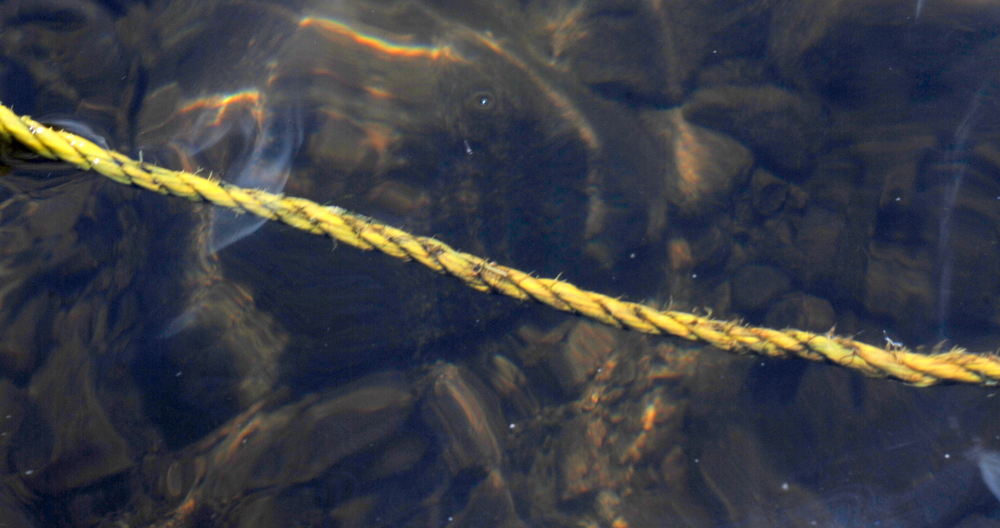a suitcase full of hope
/Chapter One
The suitcase is almost entirely filled with baby clothes. They were given to us for Tikva, before she was born.
After she died, I sat in the middle of the garage with Auntie Marty, and we went through the boxes and sorted them out. Marty was so patient with me – loving, calm and focused. She helped me decide what I wanted to keep and what I could let go of. She held the space while I touched each piece of small clothing and imagined what Tikva would have looked like sleeping in it as a baby in my arms, dancing in it as a toddler. I put everything in two big boxes and put them away in the garage.
Now, I go through the clothes again, almost a year later, and I put each piece into the suitcase.
My suitcase full of hope.
Hope that I will have another child, and that if she is a girl, she will wear these sweet things that were meant for her sister. I pick up a pale pink ruffled dress that Dave found in a thrift store a few months before Tikva was born and the tears come rushing. I just sit on the bed and cry, letting go a little more, letting go still all these months later. Then I put it in the suitcase, wondering what it will feel like when I do put that dress on my next child, my third child.
The next day I get on a plane with my suitcase and take it to Cincinnati, where the next chapter of our lives await us. In two short days, I find us a home to move into next month. I sign a lease. I make a video to show Dave and Dahlia what it looks like. I can start to see what is ahead now. I can imagine where we will put a crib when the time comes.
:::
Chapter Two
We are packing up the rest of the house. Gathering up our things to take with us.
Preparing other things to return to the generous souls who loaned us the makings of a home when we first returned from abroad – befuddled and overwhelmed – in order to give Tikva the best chance in the world at survival.
As I pack, I feel like I am undoing all that I put together before her birth. Moving backwards, as if the film projector is playing on rewind on the screen.
Tikva’s special things sit in their boxes and jars, soon to be put in a suitcase, destined for the wooden chest that awaits them in Ohio. The altar that has formed on our borrowed dresser awaits its turn to be put away in a box – found treasures from my walks in Golden Gate Park this past year. The toys people gave to Dahlia, and which she accumulated for the sole reason that she is five years old and that is what five year olds do, are sorted through and await their own suitcase. Maternity clothes are passed on, a few favorites packed to take with me (more hope). I have the vitamins and herbs I need to prepare for a healthy pregnancy in the near future (more hope).
The thing is that I really do believe there are good things ahead. Sometimes, when I am being especially Chicken Little about everything (aka catastrophic and completely overwhelmed), Dave reminds me that so much good awaits us. I know that, I really do. I feel it. I can close my eyes and feel myself pregnant again, holding a baby, nursing, holding a toddler’s hand.
I guess I just need to get there to really settle into the feeling. Get past this week of packing. Get past (and enjoy) the drive cross-country. Roll into the driveway of our new home. Get reacquainted with most of our belongings, which have been in storage for two years. Unpack. Settle into all that is new.
But first, this week of goodbye.
:::
Chapter Three
I go to my twentieth high school reunion. Anybody who asks me how old my children are gets to hear about Tikva. It feels good to talk about her. Right. Easy. People are at their best when I tell them, sweet. One old classmate says, Wow. I'm sober now. Another says, Can I buy you a drink?
A third tells me that I’m not the only one – a classmate I had barely known in high school also lost a child – her first, six years ago. I go over to her and tell her I'd like to talk to her about something we share. She knows right away what. We talk for a long time.
Uncharacteristic of me this past year, I feel social, friendly, chatty, and a bit tipsy. I am doozied up and look great. I talk to all kinds of people there, even those I had barely talked to during high school. I feel very much myself, no walls. Maybe that’s why it is so easy to talk about Tikva – my second child.
It feels like another layer of wrap-up. I want to say closure, but the closure isn’t about Tikva. It is more about wrapping up a chapter of my life that brings me here…
To this more true, more complete version of myself. The me I take into all that is ahead.
:::
Chapter Four
It feels like the last few pages of Goodnight Moon right now…
Goodnight clouds.
Goodnight air.
Goodnight noises everywhere…
Goodbye park.
Goodbye beach and ocean.
Goodbye hospital monolith on my way to everywhere.
Goodbye headstone marking the place where Tikva’s body lies.
Goodbye father and sister and family.
Goodbye friends who have held us (together).
Goodbye San Francisco.
Goodbye to this time, this chapter, this huge piece of the story…
:::
Chapter Five
Now it is all pretty much undone – at least on the surface, in the house. You can’t really undo two years of living… deeply.
I sit on the floor in an empty, echo-y living room. Dave sits on a bean bag chair next to me. It was empty when we arrived in the middle of March 2008 – my belly full of her – so early on this journey. Now this chapter wraps up.
Several times this week, I have wondered when the grown ups were going to show up to take care of all the dealing that needed to be dealt with. Packing, cleaning, organizing, administrating. Then one of those moments:
Oh! I am the grown up. Sigh... Shit! Nothing else to do right now but pack. It has felt endless, but it’s almost done, we’re almost on the road. Tomorrow we’ll take the mezuzah – the one from Jerusalem – off the doorpost to bring with us to Cincinnati.
:::
Chapter Six
We go to the cemetery one last time – for now – and I make two rubbings of Tikva’s headstone to take with me. One in color, one in black. On the way there, two baby hawks sit on two lampposts on Sunset Blvd. On the way back, one remains. On the way out a bit later, the same two are on the same posts, and a few blocks away, two adult hawks sit together on another post. A family of hawks – four.
Two and two. Two adults. Two children.
I sit before Tikva’s headstone by myself and cry.
I wish I could take you with me, Tikva. Literally… in a carseat next to your sister. Your big beautiful eyes looking around as you chew on your hands and babble.
I just sit and stare at her headstone – accepting.
And just a little bit amazed, still, that this is what we get.
This is how it is.
:::
What transitions have you been through since losing your child(ren)? Have you felt able to take them with you? Left a piece of yourself, of them, behind? What has enabled you to stay connected, and grounded, during your transitions? What have you let go of?



